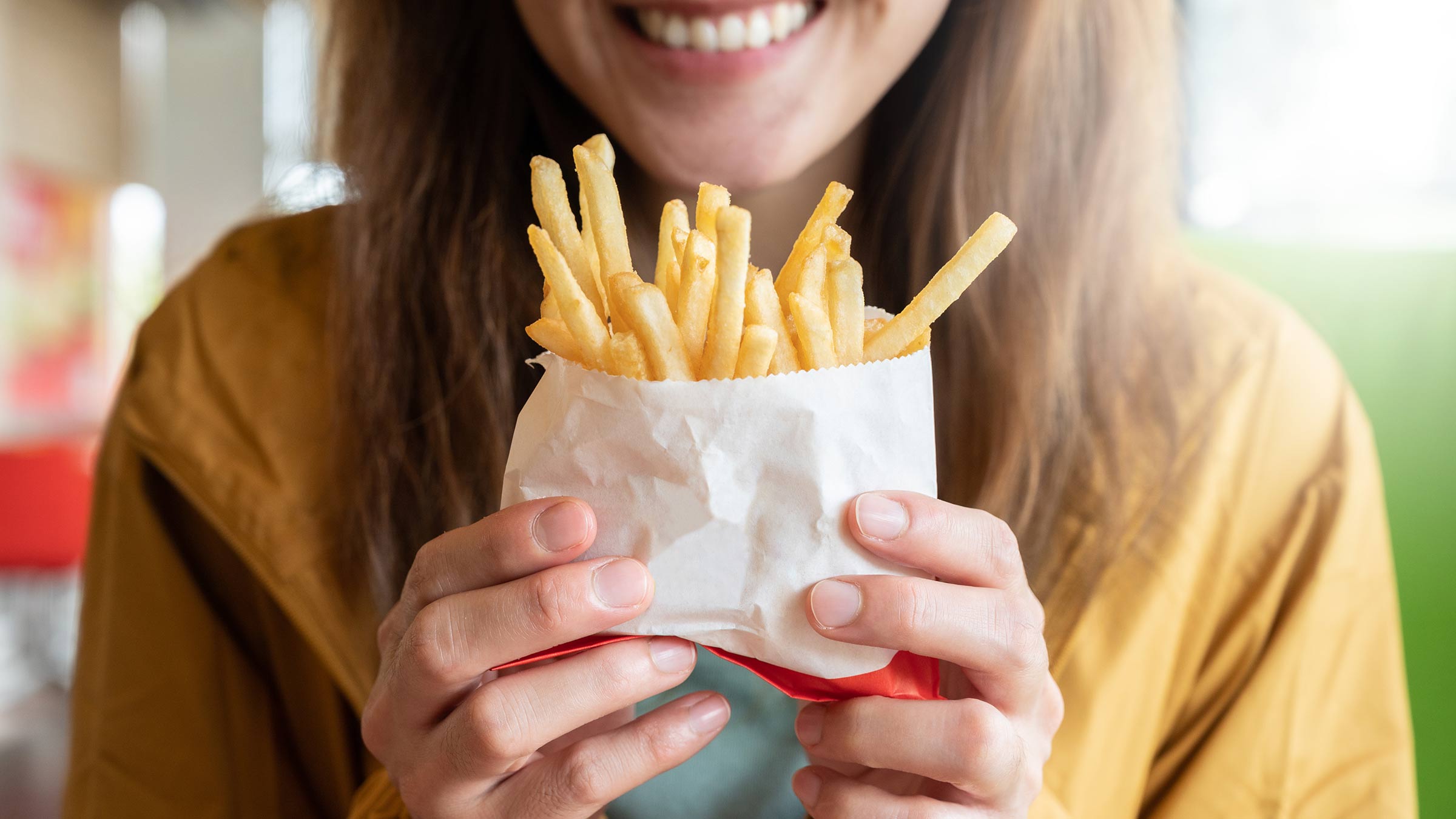
Many of us want to know the secret to trimming down a size or two, especially during the season of swimsuits and shorts.
Exercising regularly and eating a lot of nutrient-dense foods are recommended, but that also seems like a lot of work. That’s why fad diets that promise quick weight loss can seem very appealing. High-protein and high-fat diets, such as the Atkins or ketogenic diets, may be especially attractive. Any weight loss plan that includes bacon, butter and chocolate doesn’t sound like a diet.
Nor does eating only meals from McDonald’s for 100 days — the approach a Nashville man took recently to try to shed weight. At the start of his unconventional weight loss journey, which he chronicled on social media, Kevin McGinnis weighed 238 pounds. By June 1, the end of the 100 days, he said he lost 58.5 pounds. Equally surprising to many, his blood pressure and cholesterol levels went down as well.
McDonald’s diet to lose weight
Dietitians like me weren’t shocked by the results. Whenever someone loses a significant amount of weight, their blood pressure and cholesterol levels typically go down.
But how could eating fast food every meal, every day lead to a trimmer waistline? The likely reason McGinnis lost weight was because of how much he ate: only half a meal for every one of his three McDonald’s meals a day.
Weight gain or loss sometimes boils down to calories in and calories out. Even though the McDonald’s meals McGinnis ate were high in calories, if he was eating only half of the meals — fewer calories per meal than he’d been eating before — then he would lose weight.
Also, throughout the 100 days, he drank only water as a beverage. While I give him a thumbs up for the water, I would not recommend anyone follow his diet. Fast food is typically high in sugar, saturated fat and salt, none of which are healthy in high amounts.
Eating from McDonald’s meal after meal, day after day, or following any diet that’s restricting you to certain food groups or eliminating others, likely will leave you lacking vitamins and minerals your body needs to function properly. You want to make sure you’re getting enough vitamins, such as B, A, C, D, E and K, and minerals, such as copper, zinc and calcium. Most fad diets will not meet these needs.
Why fad diets don’t work
People love diets. They offer a set of rules to follow so you don’t have to think, and healthy eating isn’t quite as glamorous sounding as the latest trendy diet.
One of the more popular diets these days is the ketogenic diet or keto diet, which is ultra-low in carbohydrates. It was developed for people with epilepsy because, for reasons we don’t clearly understand, when a person burns fat instead of carbohydrates for energy, their seizures are reduced.
Though the keto diet may be appropriate for people with epilepsy if their condition isn’t controlled well on medications, it’s not a good choice for most people trying to lose weight. That’s true for the Atkins diet, as well, which, like the keto diet, is low in carbohydrates. You may lose weight at first, but you stand a high chance of gaining the weight back because fad diets don’t teach you healthy eating habits you can sustain.
What does it mean for a diet to ‘work’?
Just because a diet leads to losing weight doesn’t necessarily mean it’s healthy. A healthy diet provides all the necessary vitamins, minerals and nutrition. A diet high in fruit, vegetables, whole grains, lean proteins and healthy fats is your best bet for losing weight in a way that’s safe for your body in the long term. Limiting large amounts of highly processed foods is also important.
Processed food has been changed in some way from its natural state. The amount of processing is important. Generally speaking, the more processed the food, the less healthy it is. One example is a baked potato, which is minimally processed. Compare that to highly processed French fries that have been deep fried in oil and sprinkled with salt or other preservatives.
It’s OK to indulge occasionally
Know that not every one of your meals has to be 100% healthy. While there’s no set standard for how much junk food is too much, if 80 to 90% of your diet is healthy, there’s a little room for some “junk food” or low-nutrient food of your choice. That could be ice cream, chips, chocolate or whatever you find yourself craving.

Healthy eating is within your reach!
Make an appointment with our dietitians or nutritionists.
Schedule an appointment




